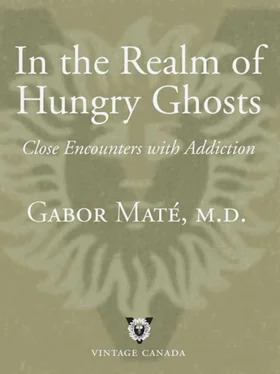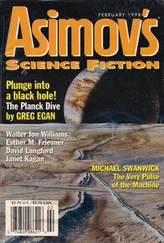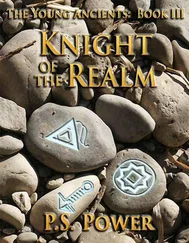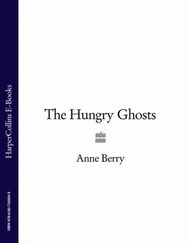I listen to Angela with fascination alloyed with a vague longing—it’s a sense of lost connection with past generations. I had no grandparents in my life. She is steeped in tradition and the spirit world. She’s heard the voices of the ancients. I read the ancients but hear only my own thoughts.
“Where is the song coming from?” the shaman asked Angela one day when he observed his wife brushing the child with the cedar leaves and saw that she, the little girl, did not suffer. She was transported, he knew, and could now be his guide. The two of them walked slowly along the trail by the river, leaving Angela’s brothers and sister and grandmother, until they were completely alone. And there in a clearing they sat, the shaman and his young granddaughter, and listened to the voices of the dead of their tribe. The dead of many generations keened and lamented and sang of their lives in an ancient tongue and told their stories and how they had worked, struggled and died since the coming of the white people, and even before. Angela received the stories and the teaching.
I see it in her. I’ve witnessed her speaking words of compassion and solace to other addicts in my office. I was also impressed by the quiet confidence with which she took the stage at a public event at the Central Branch of the Vancouver Library.
I was giving a talk on addiction. I’d invited Angela to read her poetry, and as usual, she arrived late. When I introduced her she strode purposefully to the podium from her place at the back. Unhurriedly she surveyed the audience of three hundred people and, as if it was a natural everyday practice for her, recited her works in a clear, resonant voice. It was a moving performance, rewarded with long and warm applause from her listeners.
That clearing by the river remains Angela’s place of greatness, even though her connection with it was obscured by abuse later in her childhood. She has run far away from it and doesn’t know if she’ll ever return. No keeper of sacred tribal lore now, she lives in the Downtown Eastside as a cocaine-wired hustler and back-alley courtesan. “Blow for your dough / Play for your pay,” she says in a poem.
But her joyous smile and patrician air of authority are born of her deep knowledge that such a place exists and that she has been there and heard the voices. They speak to her through all her misery. They still help her seek herself. “Mirror of my inner self, what do others see?” Angela asks in one of her verses. “Is it the truth in my heart, or human vanity? And what do I see?”
CHAPTER 6

Pregnancy Journal
This is the brief account of a pregnancy—and the birth of an opiate-dependent infant to an addicted mother. Despite her determination to face down her demons, the mother will not be able to keep the child. Her resources will not be adequate, and neither her pleas to the God-voice in her heart nor the support we at the Portland can provide will suffice to help her carry out her sacred intention to be a parent.
June 2004
I dash up to the fifth floor, where Celia is reported to be completely out of control and threatening to leap out the window. No idle threat, that—people have done it before. The reverberations of wall-piercing yells reach me in the stairwell two storeys below as I race toward the din.
I find Celia rampaging barefoot over broken glass, bleeding from several small cuts. The floor glitters with shards of shattered television screen, drinking glasses and crockery, lit up by a midday sun that throws its beams into the room at a sharp angle. The eviscerated TV console lies in the hall. Splattered food drips from the walls and from fragments of wooden chairs. Clothing is strewn all about. On the kitchen counter a small espresso machine gurgles and sizzles, filling the air with the pungent, acidic aroma of burnt coffee. A few blood-caked syringes rest on the table, the one piece of furniture still intact.
Celia stomps about, bellowing in a voice that’s only semi-human: raspy, high and grating. Tears stream down her cheeks from her reddened eyes and quiver in droplets on her chin. She’s wearing a dirty flannel nightgown. It is an unearthly scene to behold.
“I fucking hate him. Shitty, goddamn, fucking bastard.” Seeing me, Celia slumps down on the ragged mattress in the corner. I kick aside a pile of towels and hunch against the balcony window. For now there is nothing to say. As I await some sign that she’s ready for contact, I read the prayer she’s written on the wall above her cot:
“Oh, Great Spirit, whose voice I hear in the Winds and whose breath gives life to all the World around me, hear our cry, for we are small and weak.” It ends with a plea: “Help me make peace with my greatest Enemy—myself.”
June 2004: next day
Celia is quiet and even serene as she waits for her methadone script. She seems bemused by my astonishment.
“You say your room’s back to normal?”
“Well, it’s spotless.”
“How can it be spotless?”
“Me and my old man put it together.”
“The guy you hate?”
“I said I hate him, but I don’t.”
With her soft expression, clear eyes, straight brown hair and calm demeanour, Celia is an attractive thirty-year-old woman. It is impossible to recognize in her the raging harridan I saw less than twenty-four hours ago. “What do you suppose makes you fly off the handle like that?” I ask. “You were feeling upset, but there must have been some drug on board to make you that crazy. You were ripped on something.”
“Well, yeah. Coke. It’s very explosive. The less dope [heroin] I’m doing, the more stuff from the past surfaces. I don’t know how to handle my feelings. With rock I get triggered, more sensitive—incredibly sensitive—to unresolved things in my life. Things I’m hurt about become overwhelming, to the point where I go from being completely devastated to desperate to almost volcanic—it’s terrifying for me.”
“So you’ve still been topping up your methadone with heroin. Why?”
“Because I want that coma state, where I don’t feel anything.” Reflective, cogent, articulate, Celia speaks slowly, even formally, in her low, husky voice. A gap in her teeth gives her a faint lisp.
“What is it you don’t want to feel?”
“Every person I ever wanted to trust, I’ve been hurt by. I truly am in love with Rick, but for the life of me I can’t bring myself to believe that he will not betray me. It stems right back to my sexual abuse.”
Celia recalls being sexually exploited for the first time at the age of five, by her stepfather. “It went on for eight years. Recently I’ve been reliving the abuse in my dreams.” In her nightmares, Celia is drenched in her stepfather’s saliva. “That was a ritual,” she explains with an almost flat matter-of-factness. “When I was a little girl, he would stand over my bed and spit all over me.”
I shudder. After three decades as a doctor I sometimes believe I’ve heard every kind of depravity adults can inflict on the young and the unprotected. But in the Downtown Eastside new childhood horrors are always being revealed. Celia acknowledges my shock with a flicker of her eyelids and a nod and then continues. “Now my old man, Rick, was with the army in Sarajevo and he has post-traumatic stress. There’s me, having sexual abuse dreams and waking up, and I’ve got him waking up screaming about guns and death….”
“You do drugs to get away from the pain,” I say after a moment, “but the drug use creates more pain. We can control your opiate addiction with the methadone, but if you want this cycle to stop, you’d have to be committed to giving up the cocaine.”
Читать дальше













